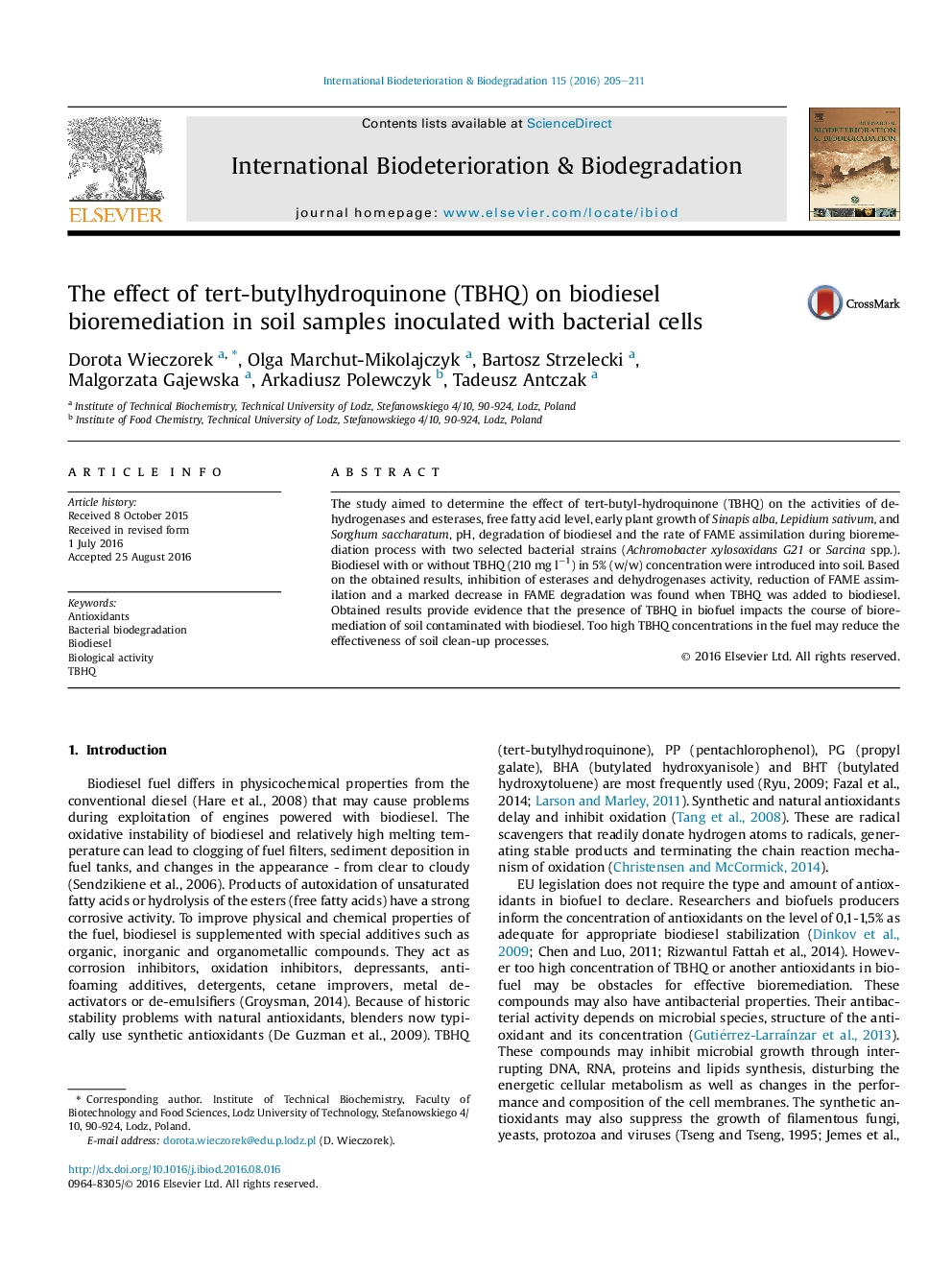| Article ID | Journal | Published Year | Pages | File Type |
|---|---|---|---|---|
| 4364179 | International Biodeterioration & Biodegradation | 2016 | 7 Pages |
•The impact of TBHQ on biodiesel biodegradation in soil was monitored for 60 days.•TBHQ affected the rate of FAMEs degradation performed by the two selected bacterial strains.•TBHQ had a statistically significant effect on the esterases and dehydrogenases activities.•TBHQ did not had a significant impact on plant roots growth.•TBHQ had no impact on amounts of free fatty acids generated during biodiesel biodegradation.
The study aimed to determine the effect of tert-butyl-hydroquinone (TBHQ) on the activities of dehydrogenases and esterases, free fatty acid level, early plant growth of Sinapis alba, Lepidium sativum, and Sorghum saccharatum, pH, degradation of biodiesel and the rate of FAME assimilation during bioremediation process with two selected bacterial strains (Achromobacter xylosoxidans G21 or Sarcina spp.). Biodiesel with or without TBHQ (210 mg l−1) in 5% (w/w) concentration were introduced into soil. Based on the obtained results, inhibition of esterases and dehydrogenases activity, reduction of FAME assimilation and a marked decrease in FAME degradation was found when TBHQ was added to biodiesel. Obtained results provide evidence that the presence of TBHQ in biofuel impacts the course of bioremediation of soil contaminated with biodiesel. Too high TBHQ concentrations in the fuel may reduce the effectiveness of soil clean-up processes.
